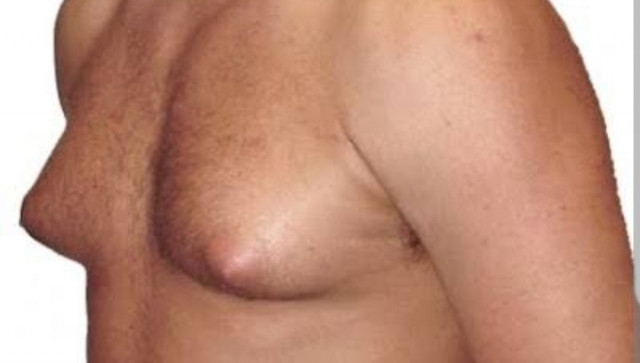ABUJA, Nigeria (NAN) - The coordinator of the National Cancer Control Programme (NCCP) under the Ministry of Health and Social Welfare, Uche Nwokwu has stated that men with enlarged breasts are at an increased risk for developing breast cancer.
In an interview with reporters in Abuja on Saturday, Nwokwu indicated that men who undergo hormone therapy to modify their bodies to appear more feminine are also at greater risk.
"When men undergo hormone therapies that change their physiology, the heightened presence of female hormones can put them at a greater risk for breast cancer," he explained.
He pointed out that since men possess breast tissue, they can develop breast cancer, despite the condition being uncommon. He confirmed that such cases have been documented in Nigeria and stressed the necessity for raising awareness on the issue.
According to him, increased estrogen levels, which is the hormone that promotes breast growth, particularly when testosterone levels decrease, can trigger breast development in men.
He elaborated, "The hormone that facilitates breast development in women is also found in men. The key difference lies in testosterone, which is more abundant in men and suppresses that hormone; therefore, when there is an imbalance, whichever hormone is in excess tends to become more prominent."
He added that when estrogen levels surpass those of testosterone, it can lead to gynecomastia, the enlargement of male breast tissue, consequently heightening the risk of breast cancer. "Once there is a disruption that affects the body’s ability to manage cell ducts, it can lead to breast cancer," he stated.
Nwokwu highlighted that the risk factors for breast cancer among men are akin to those for women. Nevertheless, he pointed out that women are at greater risk due to their more developed breast tissues and cell ducts. He mentioned that men with larger breasts are at a higher risk compared to those with average breast sizes, although no man is entirely exempt from the risk.
"The explanation is straightforward: any factor that reduces male hormones, be it due to illness or environmental influences, can result in an increase in female hormones. This imbalance can lead to gynecomastia and subsequently elevate the risk of breast cancer," he explained.
He also noted that genetics plays a crucial role: "Individuals with a family history of genetic predispositions should exercise caution, as even minor environmental factors can increase their risk."
With respect to available statistics, Nwokwu pointed out that figures are low mainly because men frequently fail to identify the symptoms of breast cancer until they receive a formal diagnosis.
He acknowledged the insufficient conclusive data on the disease among men, attributing it to broader challenges in cancer data collection. However, he mentioned that the federal government has classified cancer as a reportable disease to improve data collection efforts.
To mitigate the risk of breast cancer, Nwokwu recommended that men routinely examine their bodies for any lumps or abnormal growths, particularly in the breast area.




















